This past weekend saw the untimely death of Wayne Crawford at the comparatively young age of 69. Crawford is probably best known for producing such cult classics as Valley Girl and Night of the Comet, but he was also a talented writer, director, and actor. And sometimes, he did it all in the same movie. The 1978 low-budget horror classic Barracuda was one of those times.
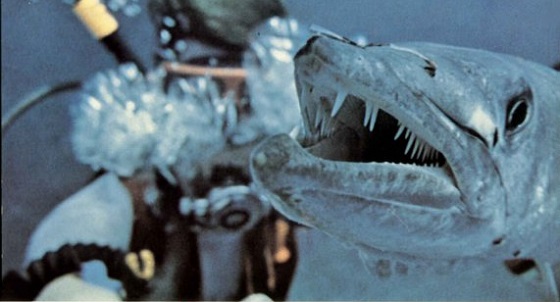
Barracuda is set in Palm Cove, a coastal Florida town which has been plagued by some strange recent occurrences. First off, the normally pleasant population has been exceedingly angry and temperamental with each other. In addition, several divers off the coast have been attacked by schools of violently hungry barracudas. A marine biologist named Mike Canfield (Crawford) suspects that the changes are due to water pollution from a nearby chemical plant, so he gathers up some samples and has a local doctor named Dr. Snow (Jason Evers from The Brain That Wouldn’t Die) test them. His suspicions are correct, but the pollution is only the tip of the environmental conspiracy iceberg. With the help of Sheriff Ben Williams (Blood Feast’s William Kerwin) and his daughter, Liza (Roberta Leighton from “The Young and the Restless”), Mike has to figure out how to stop the chemical company from polluting the water so that both the people and the fish of Palm Cove can get back to normal.
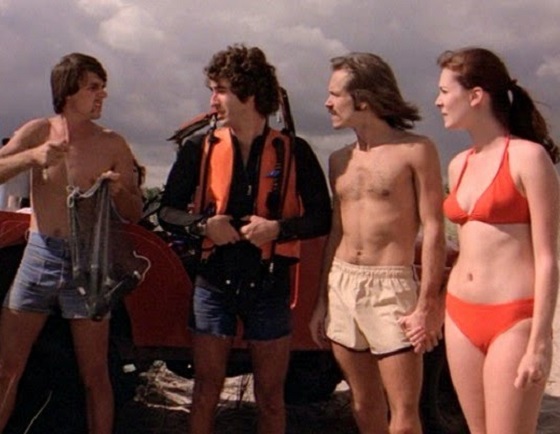
Also known as The Lucifer Project (a name which makes no sense to the viewer until almost the conclusion of the movie), Barracuda was written, directed, and produced by Wayne Crawford and his pal Harry Kerwin (Deadbeat), the brother of William Kerwin, who plays the sheriff in the film (and whose daughter Barbara did costumes and makeup for the production, making Barracuda a true family affair). Although it is usually lumped into the post-Jaws, real-life monster movie pile alongside flicks like Orca, Tentacles, and Grizzly, Barracuda takes a left turn at the midway point and becomes an ecological horror film along the lines of Prophecy or Humanoids from the Deep, sadly leaving the titular mutant fish all but forgotten for the remainder of its running time.
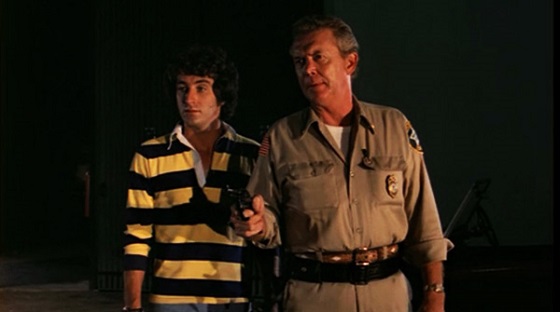
So, basically, Barracuda was the brainchild of Wayne Crawford and Harry Kerwin. They both co-wrote the screenplay, and since Crawford played the lead character, it would make sense that Kerwin would have done the directorial heavy lifting. Crawford’s contribution to the direction is in the underwater scenes, which are, at least for the first half of the movie, some of the most fun sequences. The submerged segments are long and drawn out visions of scuba divers swimming their way through reefs and kelp, yet the scenes always end up with gruesome payoffs when the barracudas show up. The water scenes are a little more Piranha than Jaws, but they make for some bloody good viewing.
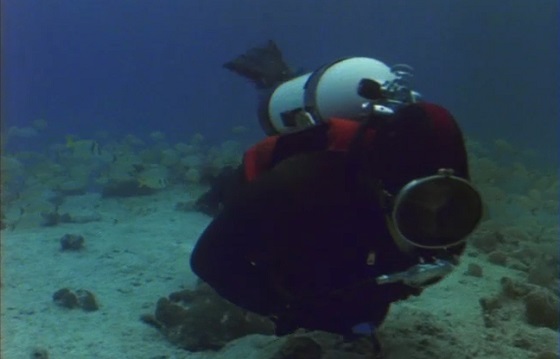
The photography on Barracuda was done by cinematographer Edmund Gibson, who earned his horror cred doing movies like Impulse and Sometimes Aunt Martha Does Dreadful Things, but also gained experience in working underwater on the television show “Flipper.” Gibson’s camera moves fluidly and follows the action, whether it’s on land or in the sea, always letting the viewer know where they should be looking. Also, just to keep things dramatic, Gibson makes liberal use of the motivated zoom, so Barracuda always has a campy look to it, like it’s a movie about, well, mutated killer fish.
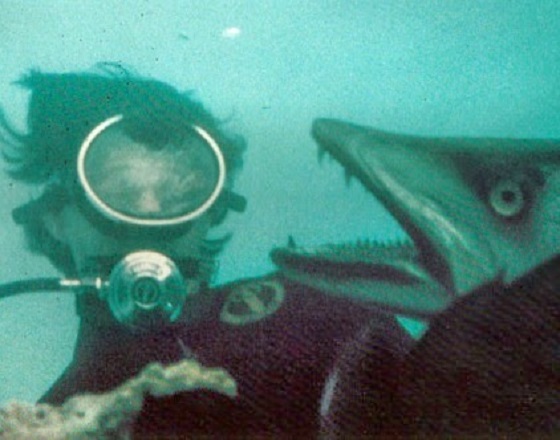
The soundtrack to Barracuda was composed by ex-Tangerine Dream and Ash Ra Tempel member Klaus Schulze (Angst). Barracuda always seems to have some type of musical bed or vamp going through every single scene in the movie, its electronic score swirling and surging along so that it’s barely noticeable, but still keeps the audience on its toes. The score gets very Jaws-like in some places, particularly during the underwater scenes, but mostly it’s just a flurry of moog synthesizer and canned percussion.
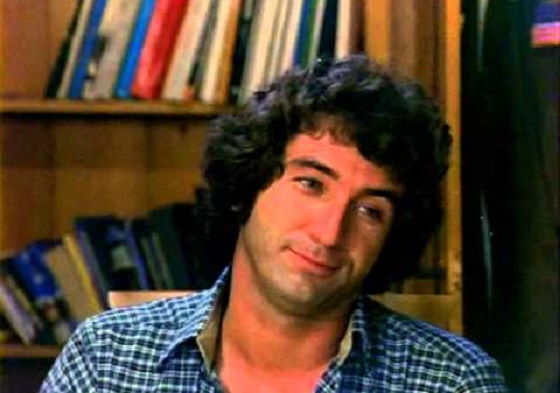
While Wayne Crawford was hardly a household name, he was definitely one of the unsung heroes of Hollywood. His contributions to the cinematic canon are largely eclipsed by the bigger stars in his movies, but in Barracuda, there was no one to overshadow him; he did it all.